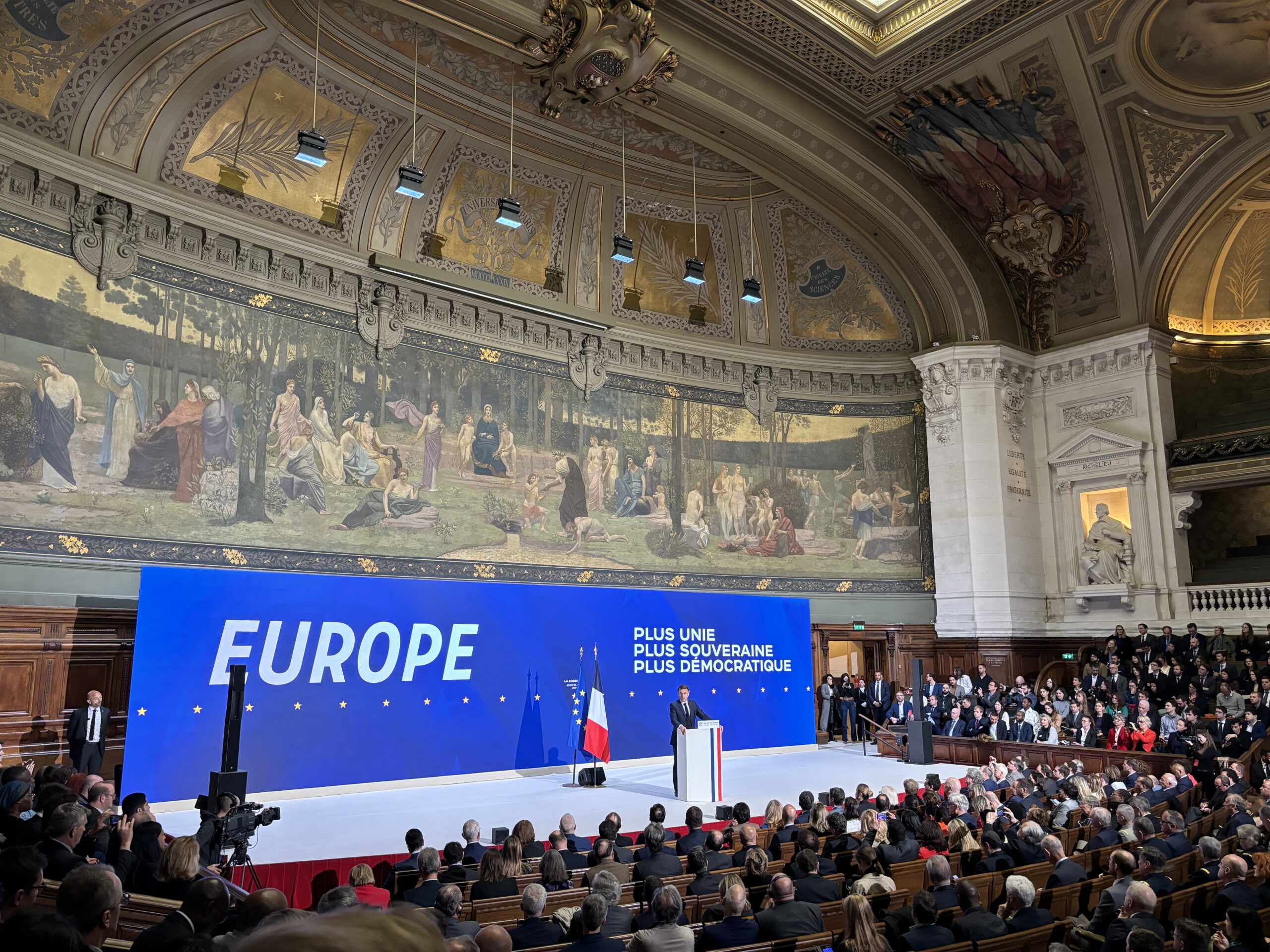Therefore, as aligned as the Western Balkans candidates can be, France, like every other Member State, will need to give its approval, which is conditioned by a referendum since 2005. But how do the French perceive the potential enlargement to the countries of the Western Balkans? One of the key challenges for the future will be ensuring the French are well-informed, well in advance of the actual date of the enlargement, enabling them to make a thoughtful decision.
The official French position: from a “yes, but” to a “yes, how?”
Until 2022, France officially supported EU enlargement, but only under the condition that the Union first undergo deepening and reform. The outbreak of the war in Ukraine in February 2022, under the French Presidency of the EU, however led European leaders and especially France’s one, to recognize the critical importance of securing the EU’s neighborhood.
Enlargement discussions then returned to the forefront, particularly in the context of security concerns regarding Russia and a broader fight for preserving the EU’s democratic and liberal foundations and its geopolitical strength and credibility. In June 2022, Ukraine and Moldova were granted EU candidate status, and Georgia was offered a European perspective, while Albania and North Macedonia, following efforts made under the French presidency, formally opened accession negotiations one month later. Then, at the GLOBSEC 2023 Summit in Bratislava, Macron expressed clear support for enlargement to the Western Balkan countries, stating that “the question is not whether we should enlarge […] nor when we should enlarge – for [him], as swiftly as possible – but rather how we should do it”.
However, the Head of State’s words do not always align with public opinion. In this case, France’s official stance does not reflect the views of the French public.

The gap in public engagement
Until 2004, before the largest enlargement of the EU, which saw ten new countries join, there was little information or interest in the expansion. This time though, the French felt that the new enlargement came without them being well-informed, and – even more importantly – without the accession of the new countries being properly prepared, reinforcing thus the sense that the EU was slipping out of their control. This event may have contributed to a growing rejection of the EU, notably highlighted during the referendum on the Treaty establishing a Constitution for Europe, where the “NO” vote prevailed, after a campaign marred by the infamous example of a “Polish plumber” as a symbol of social dumping in the EU. So, European issues – and especially that of the enlargement – have become unpopular with the public and have been sidelined by politicians.
This context helps to explain the trend observed in 2019, when 58% of the French opposed further enlargement. Also, 53% of the French felt that the accession of the Western Balkans would have little or no impact on their lives, which could be seen as a rather favourable perception of enlargement, but rather reflects a lack of interest in and knowledge of these countries, with difficulties to see the relevance or potential benefits that EU enlargement to the Western Balkans could bring to their lives.
The issue of low and negative media coverage
Therefore, EU issues do not often translate into electoral gains and generally attract low political support. Between 2016 and 2017, only 3% of French media airtime across all platforms covered EU-related issues, according to the Jean Jaurès Foundation (1). During the 2024 European elections campaign, the most popular themes were the war in Ukraine, immigration and asylum, purchasing power, and climate issues (2).
As is suggesting the war in Ukraine coverage, the topic of enlargement is often framed through risks and negative narratives rather than a mixed overview. Such as the “Polish plumber”, concerns are now focused on the “Ukrainian farmer” as a destabilizing factor for the French agricultural economy, which has until now been the largest in the EU, but would no longer be so once Ukraine joined – and may even be concurred.
What about the Western Balkans?
The Western Balkans are also subject to such perceptions, with public opinion associating the region with figures like the “Albanian mobster”, referencing organized crime in Albanian society — and more widely within the region. These stereotypes contribute to public skepticism about enlargement, even if these countries are making significant progress towards EU membership.
However, what emerges from a recent report (3) is that there is a lack of knowledge about the Western Balkans among the French population, which implies a lack of interest that naturally leads to a lack of interest in the question of the Western Balkans’ membership of the European Union. While the French don’t express an instinctive negative attitude toward the region, there is an underlying tendency to reject enlargement as people don’t see any benefits in it.
Conclusion
French public opinion on EU enlargement remains complex and ambivalent, shaped by concerns about political influence, limited media coverage, and a general indifference toward candidate regions, particularly the Western Balkans. These countries could benefit from working closely with their civil society to foster a more positive image in EU member states, including France. This approach would not only strengthen support for their EU candidacy by gaining public approval across Europe but would also help improve the broader perception of EU enlargement itself.
__________
Fondation Jean Jaurès. (2019). Renforcer l’information des Français sur l’Union Européenne: le défi du cycle européen 2019-2024. Retrieved from https://www.jean-jaures.org/publication/renforcer-linformation-des-francais-sur-lunion-europeenne-le-defi-du-cycle-europeen-2019-2024/
Fondation Jean Jaurès. (2024). Les médias et la campagne pour les élections européennes de 2024. Retrieved from https://www.jean-jaures.org/wp-content/uploads/2024/05/media-elec-europ.pdf
Open Society Foundations. (2023). It’s the EU, Not Western Balkan Enlargement. Retrieved from https://www.opensocietyfoundations.org/publications/its-the-eu-not-western-balkan-enlargement








